- Home
- Perrin Briar
Z-Minus (Book 5) Page 2
Z-Minus (Book 5) Read online
Page 2
Dr. Phillips’ eyes rolled into the back of his head. Unconsciousness, and soon death, would take him. At least he had achieved his goal. Archie was whirring, his arm twisting and turning, doing its business.
Six hundred miles away, Archie’s elder twin turned on.
5:59 am
Susan slapped the alarm off two seconds before it rang. She didn’t know how she did that, she just could. End pain and discomfort before it has a chance to develop. It’ll help build a happier life.
It’d become a habit, ingrained during a lifetime of rote and repetition. That’s all a successful life was, really, rote and repetition of the right habits. Susan once ran an experiment to see if she would still wake up at the same time if she didn’t set her alarm. She ended up arriving an hour late for work. She learned she needed deadlines, just so she could beat them.
Susan got up, moved to the window, and pulled open the curtains. She closed her eyes against the soft sunlight. She rolled her neck and bent over, stretching the muscles in her back, legs and arms. She jogged on the spot and performed some yoga postures, taking care to breathe slowly, letting Rosario’s words tumble through her mind.
If the mind is the kite, breathing is the string.
Rosario wasn’t a meditation guru, but a for-hire nanny. Life can be lived by a set of simple insights, she’d maintained. Just make sure they’re the right ones before you start. Rosario was one of those deeply intuitive personality types, the type who could come up with a piece of lifelong advice with a moment’s notice. It was a good thing Susan had someone like Rosario growing up. Her family weren’t much at giving advice.
Susan Scott was born into a very wealthy family. They were often referred to as ‘the cream of the cream’ in the press, but life above the milling masses always tasted off to Susan.
She’d inherited her share of the family fortune and sunk it all into property. A management agency took care of leases and tenants. The money the properties made went into an account that she hadn’t looked at in years. It would pass to her daughter Amy one day, and she could use it any way she saw fit.
Susan kept two properties for herself. The first was the apartment they currently resided in. It was a small, but charming, apartment on the fringes of Charlotte, North Carolina, within walking distance of the park, where Amy liked to run and chase after the dogs.
The second was a medium-sized country home twenty miles outside town. It was her retreat, a way to escape from all the stress and strains of a busy work and home life.
When she’d bought the property it’d been named Green Pastures. The name fit, so she didn’t bother changing it. There, she and Amy would go for long walks. They would sit and do nothing. There was no TV, no internet. It was a place to unplug and forget the world for a while. Susan always came back feeling refreshed and energized, ready to take on whatever – or whomever – had stressed her out in the first place.
A stressful thing is only stressful from where we sit. Shift perspective, and it looks totally different, often fading into insignificance.
Susan hit the shower. She turned on a wellbeing podcast. She couldn’t hear half of what the lifestyle guru was saying, but she didn’t need to. She would listen to it over and over again anyway.
Nothing gets into the heart and soul like a recurring message. Just make sure it’s a message you want to be listening to.
Susan surrounded herself with only the kind of people she liked hanging out with, those she admired and wanted to mimic. She didn’t care for those who naturally drifted toward the Scott clan. Hangers-on and suck ups for the most part. She had no need nor time for them. She made that clear every year at the obligatory family Christmas do. It was a turmoil Susan was glad Amy didn’t have to endure.
Susan grew up thinking her mother Margaret was the landlady of the house she lived in. It was Rosario who had raised her, loved her. She was her true mother. Susan had had a string of nannies, some of whom were good to her, some not so good. Susan’s mother didn’t like for Susan to be too friendly with her nannies, and so Rosario would always put on a show of disliking Susan, and encouraged Susan to act the same. It was good practice. High society types were all good actors.
Susan was not a good actor. Words flowed from her in a river of honesty. With Susan, you got what you saw. For the longest time that was what she blamed for the death of her marriage.
She’d run the divorce proceedings through her mind a thousand times before they occurred. She was prepared to fight tooth and nail over custody of Amy, prepared to grab every penny she could from their shared wealth, but it turned out her husband wanted none of it. What stung the most was he didn’t want a piece of Amy either.
Susan didn’t need the alimony payments, but his time with raising their daughter would have been nice. But she had learned to harden herself against his callousness. He would not hurt her or Amy ever again.
Never compromise, her father had told her. Never compromise, otherwise before you know it, they’ll have the shirt off your back and the thread from your socks. It was the only useful advice she could recall him ever giving her.
Her father was another shadow in Susan’s life. He was a man who achieved great things in the world of science, research, and academia. He funded his own studies, not needing to go through the usual financial scrabbling route as other scientists. It gave him a freedom most could only dream of.
Just a few days ago Susan’s mother had told her her father was dead, that he’d disappeared on one of his expeditions – in the wilderness of the Antarctic of all places, that he’d wandered off into the frigid cold and never returned. Susan could tell her mother didn’t believe this, and frankly neither did she.
Her father could never die in such a prosaic way. His destiny was to die the way he had lived – with fireworks and a blaze of glory. None of the family took notice of such rumors. There had been many like them before, and he always returned from the grave. Much to the chagrin of some family members. Most notably Lucia, Susan’s sister. Though she was only a mouthpiece for her scum-ball husband Reginald. A wolf in sheep’s clothing.
Susan shook her head to dispel such negative thoughts. They were disrupting her positive energy.
Susan entered her bedroom and opened her wardrobe, drying her hair with a towel and tying it back with a scrunchie. She wasn’t one for shopping or collecting trinkets or shoes or bags. She dressed in a pair of jeans and a T-shirt.
It was thanks to Rosario that Susan learned of normal people and their everyday struggles. She saw through the difficulties they faced and identified the opportunity it presented for a fulfilling life – a life where you got out whatever you put in. It appealed to her.
She’d seen firsthand what a life of privilege could do to a person, to a family. The Scotts had more skeletons than they had closets to hide them in, all attributed to the fact they never had to work a day in their lives. Susan firmly believed a few knocks, blisters and bruises were essential ingredients for a happy life. Life was not about getting everything you wanted, when you wanted. It was about fighting for what you got, standing on your own two feet before the world and declaring you were here, that you were alive and meant something. It was a life she had been desperate to give Amy.
But Amy would never live the life Susan had hoped. Some days that fact reduced her to tears.
The house was still quiet. Susan creeped across the hall to the second bedroom. This was the one room in the apartment that was messy. A plethora of multicolored toys were heaped along the walls.
The bed had a solar system mobile above it with all the planets arranged in order. Amy was fast asleep on her back with her head to one side, in a land of dreams of her own making.
Susan smiled at her daughter, pride seeping from every pore. How could anyone leave her? She was beautiful. How a father could want no part in how his daughter was brought up or raised, despite living in the same city, was beyond Susan. She knew his reason, but she couldn’t understand. He’d presented an ult
imatum for Susan and their relationship, but she wouldn’t listen to him or it, and so they had parted ways.
When Susan had given birth to Amy she’d immediately begun looking for a nanny like the one she’d had, like Rosario. Susan could never have been a stay-at-home mother. She admired women who could, but she didn’t want her life to be controlled by one person, no matter how much she loved her.
She searched and searched, interviewed one applicant after another, but no one had the down-to-earth wholesomeness that Rosario had. And then the thought occurred to her:
Why not simply ask Rosario?
She’d been taking care of a pair of boys when Susan approached her. The boys were almost fully grown now and wouldn’t need her for much longer. If Susan didn’t mind waiting a few months, she would be happy to take the job. A few months waiting for a lifetime of excellent teaching and lessons? It was a no-brainer.
Susan agreed to all of Rosario’s requirements. She wanted every Sunday off, and a week’s holiday in the summer and winter. Susan offered to pay for all the holidays as a thank-you, but Rosario kindly refused.
Everything in Susan’s life she’d earned herself. She didn’t have much because she didn’t need much. An uncluttered life is a life where the problems stand out a mile, Rosario had told her. Susan had taken her advice to heart, and lived a minimalist lifestyle. It was easier to enjoy the simple things when you had nothing to complicate it.
Susan went downstairs and ate some lightly buttered toast. She stared out the window, thinking about nothing in particular. The doorbell rang. Susan opened the door to find Rosario on the front step.
Her once luxurious black hair was now unkempt and fraying, with thick gray and white strands at the temples. Her face was wrinkled with lines that only came with raising other people’s children. She’d put on weight in recent years, having always been so proud of her slim figure. But she still had the warm temperament of a woman born to be a mother.
She had three sons of her own. The tragedy was that while she was working, taking care of others’ kids, she wasn’t at home enough to take care of her own, and so a rift developed between them. She’d lost contact with them long ago. It was a part of Rosario’s life that Susan didn’t like to think about.
“I might be late tonight,” Susan said.
“No problem,” Rosario said. “She’s still upstairs?”
“Fast asleep,” Susan said.
“I might catch a few winks too, then,” Rosario said. “While I can.”
She never needed sleep when Susan was a girl. She was always full of energy, always rushing around, carrying out tasks and jobs, never letting anyone do anything she couldn’t do herself. It was a relief to be able to leave Amy with someone she could rely on.
Susan put on her helmet and pushed her bike outside. She breathed in a deep lungful of air, smiled, and climbed on. It was the start of another beautiful day.
There was one piece of advice from Rosario, tucked deep in the corners of Susan’s mind, that was as far from her thoughts as the drifting clouds, and yet it was that nugget of truth that would come to sum up the next twenty-four hours in Susan Scott’s life:
The darkest of days come from the brightest of moments.
Susan, blissfully unaware, pedaled happily into the new day.
6:32 am
Charlotte was nicknamed the Queen’s City, in honor of Charlotte of Mecklenburg-Strelitz, who became the Queen of Great Britain just seven years before the town’s incorporation.
A trace of the old world colonialism style still remained, and it always made Susan relax, putting her in her place in the great scheme of things. Some of the buildings had been around for centuries, and would be around for a lot longer yet. Susan and her life were but a blink of an eye. Susan let out a breath with a deep sigh of satisfaction.
The city was already clogged with traffic, horns making soft mewling noises like conversing nightlife. Susan cut through Freedom Park, slowing to swerve around joggers and mums pushing prams. They all wore the concern of a busy life on their brows, rarely taking the time to look up and admire their fortunate situations.
The trees and foliage thinned as Susan approached the wide open space. Here, Tai Chi classes took place, as well as short plays and other performances on summer evenings. Right then, a group class was working on their yoga postures on special mats. Susan squeezed her brakes and pulled to a stop to watch.
“Looking good,” she said.
One of the yoga practitioners at the front of the class, a larger man called Steve, beamed at her. He had a large square chin and thick moustache.
“You know how I like to get my yoga on,” he said. “Focus on my chakras.”
Susan eyed the instructor, an attractive twenty-something in perfect shape. She bent over, exhaling, and all the men in the class eyed her rump with hungry eyes.
“I can see you’re focusing on something,” Susan said.
“You’re just jealous,” Steve said.
Susan shrugged.
“I can’t deny that,” she said.
“Don’t worry, me and the lads still find you attractive,” Steve said. “At least a seven.”
His comment was met with nods of agreement from the others.
“Thanks,” Susan said flatly. “I think. I’m going to work. Some of us have important things to do.”
“Will you quit gabbing?” a fresh-faced young man called Oaks said. “Some of us are actually here to improve ourselves.”
Steve rolled his eyes.
“And she’s about to do the downward facing dog,” another man said.
“See you, Susan,” Steve said, eyes focused and leering at the instructor.
He raised an arm to wave. He had no right forearm, cut off at the elbow. All participants in the class were severely injured, each man and woman missing a limb or had suffered extensive first-degree burns. Not all the students had been soldiers, only Steve and Oaks. The rest were civilians.
Susan hadn’t once heard any of them complain. They were grateful to still have their lives, and for the care they received. They were a rare breed, brave beyond compare, both a pleasure and an honor to work with. Even if they were constantly fixated on sex.
Susan took her helmet off and approached the crossing on foot. She waited for the lights to turn red and the cars to stop. People were heading to work, the city choked with salarymen and women.
An ambulance screamed in the distance. The drivers pulled to one side and let the ambulance pass, its siren deafening. The moment it came to a stop in front of Charlotte General, the paramedics leaped out, pulled the backdoors open, and placed the stretcher on a trolley.
Susan crossed the road but didn’t approach the hospital. Instead she pushed her bike along a path that wound around to the back of the building to the Research and Development Center. She tucked her bike into a stand and attached a bike lock around the back wheel and frame.
The building was made of glass and metal, in the modern space-conscious design. The main atrium was a tall gherkin with a circular garden in the center. There were few people around at this time in the morning. They operated on a flexi-time system. Employees could come and go as they pleased. A happy workforce was a more productive workforce. At least, that was the theory.
Susan pressed a button for the lift and waited. It was made of glass and slid silently on cables. She hated it. Looking through the walls always made her feel like she was going to fall. It slid into place and Susan got on.
She pressed the button for the fifth floor. There were a total of six floors in the building, including the basement. The doors began to slide closed.
“Going up,” the elevator’s calm female voice said.
“Hold the lift!” a voice said. “Wait!”
Susan hit the hold button. The doors slid open again, revealing a mussy-haired and round-bellied man in his mid-twenties. He had a full-face beard. His glasses were black with thick lenses, very much in vogue. The fashion statement was purely a
ccidental. Phil wore them because he’d owned them for ten years. Everyone’s in fashion at least once in their life, and these days it was Phil.
“Thanks,” Phil said.
The glass doors slid shut.
“Ready for the presentation today?” Phil said.
He always managed to say the wrong thing. Susan had been trying to keep her mind off it all morning.
“Thanks for reminding me,” Susan said.
“Sorry,” Phil said, genuine apology in his eyes.
“It’s okay,” Susan said. “Being reminded of it doesn’t stop the fact it’s still going to happen. Yeah, I’m ready.”
She stiffened as the elevator drew higher, the ground falling away.
“I’d be really nervous if I had to give it,” Phil said. “But you’re always so calm. I don’t know how you do it.”
“Does it help to be nervous?” Susan said.
“No,” Phil said. “I suppose not.”
“Then being nervous can only get in the way,” Susan said with a smile. Another of Rosario’s tenets.
Phil’s brows drew down into a frown. He pursed his lips, in deep thought. Some people never changed much from when they were children. Phil looked just as he did as a child, only a larger version.
The elevator came to a stop. The doors opened. CHILDHOOD DISEASES was written on the wall in a flowing font. A man in a suit got on the elevator and smiled pleasantly at Phil and Susan. He didn’t know either of them. He pressed the button for the third floor.
“Going up,” the elevator voice said.
Phil was silent as the elevator began to move again. He glanced over at Susan, opened his mouth to speak, and then thought better of it. The elevator came to a stop and the man in the suit got off.
“Some people are so lazy,” Phil said. “Taking the elevator for one floor.”
He shook his head. His necks wobbled. He could do with taking a few more stairs, Susan thought.
The third floor was ADVANCED WEAPONRY. The fourth floor was COMA RESEARCH. The fifth floor, Susan’s department, was VIRUS PREVENTION & ADVANCED ROBOTICS. Phil stepped forward, blocking the elevator doors with his girth, as if they were going to suddenly close. He waved Susan through.

 Sink: Once Upon A Time
Sink: Once Upon A Time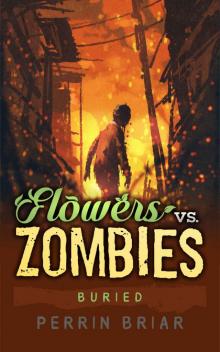 Flowers Vs. Zombies (Book 5) Buried
Flowers Vs. Zombies (Book 5) Buried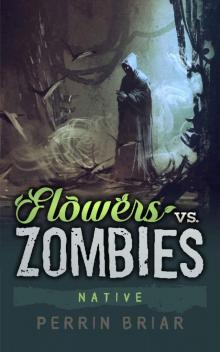 Flowers Vs. Zombies (Book 6) Native
Flowers Vs. Zombies (Book 6) Native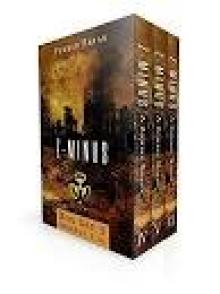 Z-Minus Box Set 2
Z-Minus Box Set 2 Skip: An Epic Science Fiction Fantasy Adventure Series (Book 2)
Skip: An Epic Science Fiction Fantasy Adventure Series (Book 2)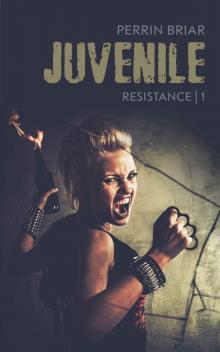 Resistance (Book 1): Juvenile
Resistance (Book 1): Juvenile Blood Memory: A Post-Apocalypse Series (Book Five)
Blood Memory: A Post-Apocalypse Series (Book Five) Sink: The Lost World
Sink: The Lost World![Z-Minus Box Set [Books 1-3] Read online](http://i1.bookreadfree.com/i1/03/30/z-minus_box_set_books_1-3_preview.jpg) Z-Minus Box Set [Books 1-3]
Z-Minus Box Set [Books 1-3] Compulsion
Compulsion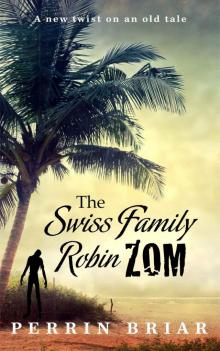 The Swiss Family RobinZOM (Book 3)
The Swiss Family RobinZOM (Book 3) Sink: The Complete Series
Sink: The Complete Series Expulsion
Expulsion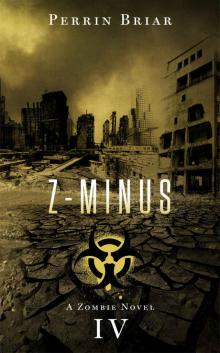 Z-Minus (Book 4)
Z-Minus (Book 4) Resistant Box Set
Resistant Box Set The Swiss Family RobinZOM (Book 2)
The Swiss Family RobinZOM (Book 2)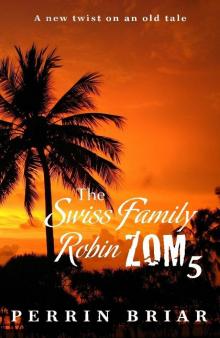 The Swiss Family RobinZOM (Book 5)
The Swiss Family RobinZOM (Book 5)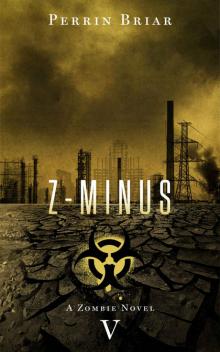 Z-Minus (Book 5)
Z-Minus (Book 5) Resistance (Book 2): Resistant
Resistance (Book 2): Resistant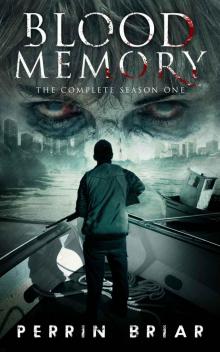 Blood Memory: The Complete Season One (Books 1-5)
Blood Memory: The Complete Season One (Books 1-5)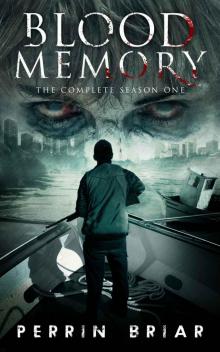 Blood Memory (Season 1): Books 1-5
Blood Memory (Season 1): Books 1-5 Flowers Vs. Zombies: The Complete Series
Flowers Vs. Zombies: The Complete Series Sink: Old Man's Tale
Sink: Old Man's Tale![Cut Off [Part 1] Read online](http://i1.bookreadfree.com/i2/04/06/cut_off_part_1_preview.jpg) Cut Off [Part 1]
Cut Off [Part 1]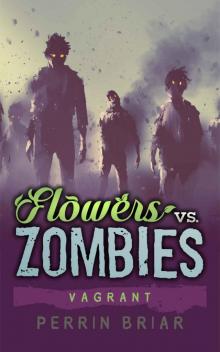 Flowers vs. Zombies (Book 2): Vagrant
Flowers vs. Zombies (Book 2): Vagrant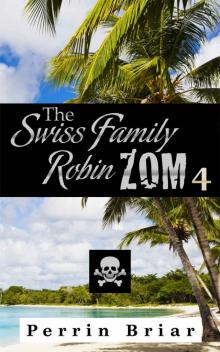 The Swiss Family RobinZOM (Book 4)
The Swiss Family RobinZOM (Book 4)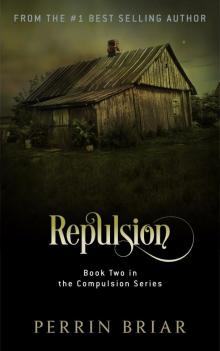 Repulsion (Compulsion Book 2)
Repulsion (Compulsion Book 2)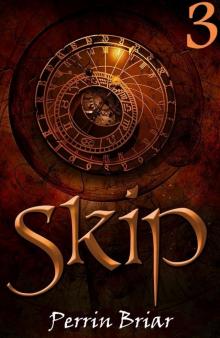 Skip: An Epic Science Fiction Fantasy Adventure Series (Book 3)
Skip: An Epic Science Fiction Fantasy Adventure Series (Book 3)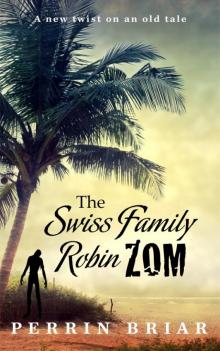 The Swiss Family RobinZOM
The Swiss Family RobinZOM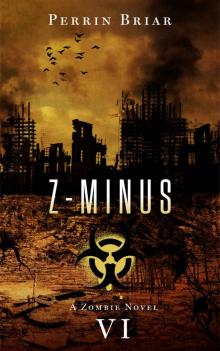 Z-Minus (Book 6)
Z-Minus (Book 6)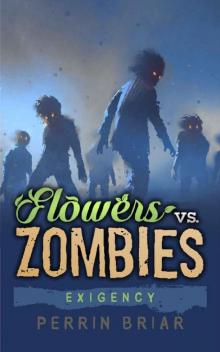 Flowers vs. Zombies (Book 4): Exigency
Flowers vs. Zombies (Book 4): Exigency![[An Epic Fantasy 01.0] Skip Read online](http://i1.bookreadfree.com/i2/04/12/an_epic_fantasy_01_0_skip_preview.jpg) [An Epic Fantasy 01.0] Skip
[An Epic Fantasy 01.0] Skip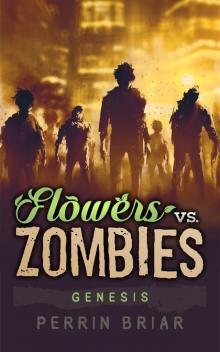 Flowers Vs. Zombies: Genesis
Flowers Vs. Zombies: Genesis